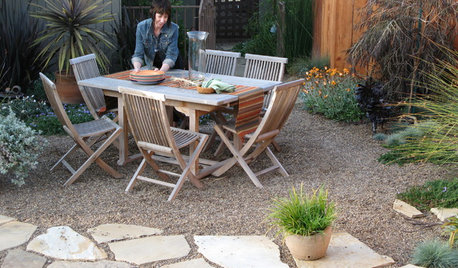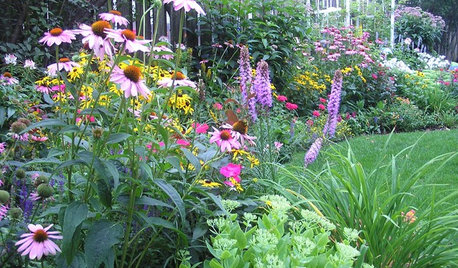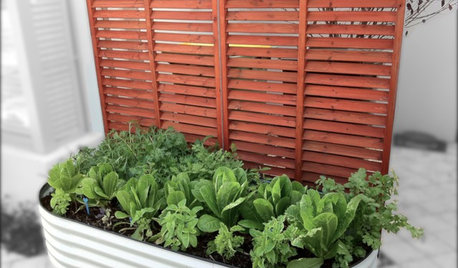Compost Tumbler worms - Sorting and Saving?
wlai
14 years ago
Related Stories

GARDENING GUIDESHouzz TV: Make a Worm Bin for Rich Soil and Happy Plants
A worm-powered compost bin that can fit under a sink turns food scraps into a powerful amendment for your garden. Here’s how to make one
Full Story
GARDENING GUIDESGet on a Composting Kick (Hello, Free Fertilizer!)
Quit shelling out for pricey substitutes that aren’t even as good. Here’s how to give your soil the best while lightening your trash load
Full Story
LIFEThe Top 5 Ways to Save Water at Home
Get on the fast track to preserving a valuable resource and saving money too with these smart, effective strategies
Full Story
LANDSCAPE DESIGN15 Great Ideas for a Lawn-Free Yard
End the turf war for good with hardscaping, native grasses and ground covers that save water and are easier to maintain
Full Story
LANDSCAPE DESIGNTry Slow Gardening for Some Unexpected Benefits
Why set your garden on the fast track? Here's how to relax and enjoy it in an entirely new way
Full Story
GARDENING GUIDESNew Ways to Think About All That Mulch in the Garden
Before you go making a mountain out of a mulch hill, learn the facts about what your plants and soil really want
Full Story
LIFE10 Beautifully Simple Ways to Go Greener in the New Year
You may just find more green in your wallet along the way
Full Story
FALL GARDENING7 Reasons Not to Clean Up Your Fall Garden
Before you pluck and rake, consider wildlife, the health of your plants and your own right to relax
Full Story
EDIBLE GARDENSHow to Grow Your Own Sweet Summer Crops
This guide will help any gardener get started on growing the freshest warm-season veggies and berries for summer
Full Story
FEEL-GOOD HOME21 Ways to Waste Less at Home
Whether it's herbs rotting in the fridge or clothes that never get worn, most of us waste too much. Here are ways to make a change
Full StoryMore Discussions






sbryce_gw
equinoxequinox
Related Professionals
Piqua Landscape Architects & Landscape Designers · Harvey Landscape Architects & Landscape Designers · Allentown Landscape Contractors · Canyon Lake Landscape Contractors · Fuquay-Varina Landscape Contractors · Lemay Landscape Contractors · Northbridge Landscape Contractors · Parker Landscape Contractors · Petaluma Landscape Contractors · Ronkonkoma Landscape Contractors · Saint George Landscape Contractors · Chicago Ridge Landscape Contractors · Genesee Stone, Pavers & Concrete · Goldenrod General Contractors · San Marcos General Contractorsfam62cc
borderbarb
wlaiOriginal Author
equinoxequinox